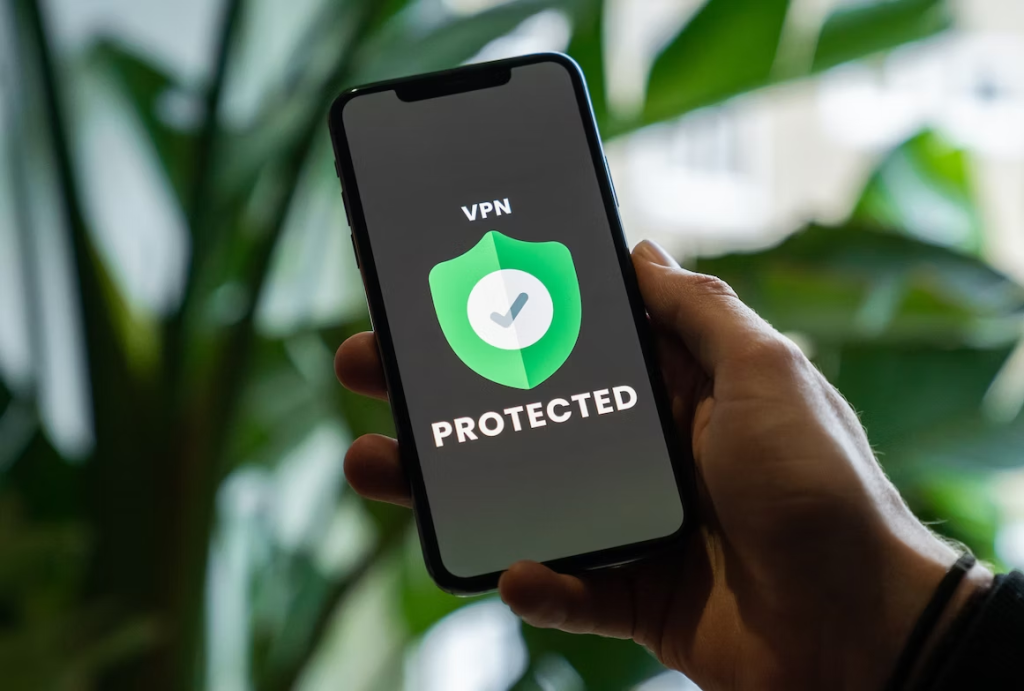Many of us spend hours daily online, whether for work, shopping, entertainment, or simply browsing. We’re all well aware of the frequent news about major data breaches. However, it’s easy to get caught up in the convenience and speed of the online world and forget to take the necessary steps for online privacy protection. There are several easy privacy measures that can play a critical role in protecting you. Developing proper habits and using reliable tools is the key to data protection.
#1 Create unique passwords
Make sure to create different passwords for each of your devices, accounts, and websites. If you need to write them down to remember them, store them securely in a private and locked location. When visiting websites, look for the lock icon, HTTPS protocol, or green highlighting in the URL bar, as these indicate potential security. However, keep in mind that these methods are not foolproof.
#2 Use 2FA
Two-factor authentication must be enabled on all devices and accounts that are available. Even if your username and password are leaked, attackers will not be able to log into your account without confirmation by mail, call, SMS, or Google Authenticator. Don’t be put off by the need to enter these codes yourself, it’s definitely worth it.
#3 Protect your data with a VPN
Virtual private networks (VPN) offer a simple and effective method to safeguard your connection against various online threats. If you download VPN on Mac, you can establish a secure and encrypted connection to any server. This adds an extra layer of protection and mitigates the cybersecurity risks. VPNs are beneficial when relying on public WiFi networks, where threats are more prevalent. Usually, it is enough to VeePN app download, connect to the optimal remote server, and this will serve as privacy protection. VeePN protects against snooping, eavesdropping, phishing, and DDoS attacks. Considering that this vpnlist also has a free trial version, it is definitely worth a try.
#4 Use a more secure search engine
Most users choose a web browser based on features they prefer or out of familiarity. However, there’s no guarantee that your choice is secure enough. Even for users who prioritize security, a clear option may not exist. If you’re considering switching to a new browser, it’s recommended to check reviews and learn about security features first. Although using multiple browsers may increase RAM usage, it can be a useful way to compare interfaces and features temporarily while deciding on your primary browser. If you have specific concerns about security, feel free to ask for further assistance.
#5 Double-check any unfamiliar links
One easy way to protect your digital identity is to never trust any link. In other words, always take the time to assess and double-check the link before clicking on it. This also helps protect your device by reducing the chances of it being exposed to viruses and malware.
Clicking on a link doesn’t mean you’ll immediately fall victim to identity theft, but it does increase your risk. This is because not all malicious content operates in the same manner. Some websites try to trick you into providing sensitive information, such as your credit card number, by using a layout that appears trustworthy.
#6 Control your cookies
Privacy regulations mandate that websites enable visitors to manage their online presence by controlling the cookies that track their visits. With a simple click, consumers can refuse the website’s access to store any information from their visit, safeguarding their privacy and preventing any unwanted contact. However, many consumers falsely believe that choosing this option may result in a loss of certain benefits.
#7 Block ads
Online advertisements can be quite bothersome, and to make matters worse, they can also pose a threat to your privacy. On top of bombarding you with unwanted ads, they track your online activity just like the previously mentioned trackers.
Moreover, malicious ads can even infect your computer with harmful software.
All things considered, it’s advisable to use an ad blocker. A reliable ad blocker prevents ads from displaying in your browser, enhancing your browsing experience and safeguarding your privacy. There are numerous excellent options available, with uBlock Origin being one of the top choices. Other notable ones include AdBlock Plus and AdBlock.

#8 Share information on social media with care
Most social media platforms allow public access. Instagram, Facebook, and Twitter have privacy features, but you must use them to protect yourself. By limiting what you share, you can avoid problems. Even with a locked or private account, there are things to avoid. Don’t answer questions on your feed that reveal personal information like your first car, favorite color, or pet’s name. Avoid unintentionally sharing personal information or files when batch uploading.
#9 Don’t post photos directly from your phone
Please refrain from directly posting photos captured by your phone’s camera. Nowadays, most phones automatically embed EXIF metadata into the image files, which may include sensitive information like location coordinates. This data can be easily extracted and potentially misused. To mitigate any risks, disable location sharing or take a screenshot of the photo before sharing it.
#10 Delete old apps
It’s always a good idea to remove any old apps you no longer use on your smartphone, web browser, or PC. Apart from the security risks, removing outdated apps can significantly improve your device’s performance. This is especially true for smartphones and browsers, as they can accumulate unused add-ons that take up valuable storage space. Additionally, deleting old apps helps protect your device against security vulnerabilities. Some apps and add-ons may no longer receive updates from developers, leaving them susceptible to potential threats.
Conclusion
We hope this article has provided you with some useful tips to help you protect your digital identity. It’s not easy to keep up with the ever-changing cybersecurity landscape, but a few simple steps can go a long way in protecting yourself online. Remaining vigilant and keeping software up-to-date are essential components of maintaining good cybersecurity hygiene.







